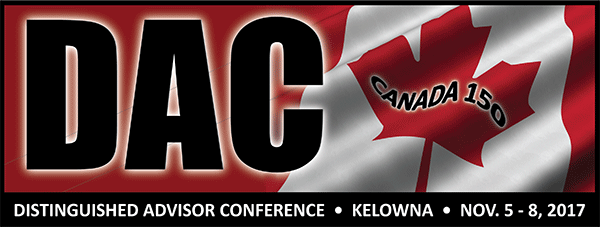Last updated: March 07 2017

Spotlight on Canadian Financial Authors: Rick Atkinson
In Canada’s 150th year, Knowledge Bureau is pleased to put the spotlight on Canadian Financial Authors and celebrate Financial Advice at the Crossroads of Change at DAC Nov 5-8 in Kelowna. This week: Rick Atkinson discusses: WHY SEASONALITY MATTERS WHEN YOU RETIRE
By Rick Atkinson
As part of every client’s retirement plan, serious consideration needs to be given to the best time of year to retire. Not only are there financial implications to think about, but the client should also consider what the weather will bring. Here are the top three things to consider:
Cost of Living Raise is Missed. When Kathy retired at the end of August, she was informed she was not eligible for the annual cost-of-living increase. Kathy had assumed she would receive the increase as part of her pension.
Action Plan: As some employee benefit programs state you must be retired on or before July 1st (meaning your last working day would be June 30) to receive any cost-of-living increase on your pension granted for July 1st, it’s important for Kathy to fully understand how cost-of-living increases work at her place of employment before retiring. She needs to talk with her supervisor or Human Resources representative about how her pension may be affected, if retiring at different times of the year.
Vacation Payoff. Susan has 40 days of accrued vacation. She is contemplating retiring but is not sure if she will lose her banked vacation days.
Action Plan: The first week of January may be appealing to begin retirement, especially if Susan is carrying more than the maximum accrual for vacation. She could get paid for the total as long as she retires before the end of the first pay period in January. Retiring in January also gives her the entire tax year to absorb that lump-sum payoff.
Seasonal Blues. Juan retired in October. Each morning Juan awoke to grey skies and rain. Juan wishes he had retired in the summer when he could be outside enjoying the sunshine.
 |
Action Plan: Regardless of when Juan chooses to retire, it is important for him to plan activities or events to counter or coincide with the season. For example, if retiring in January, Juan may want to start with a trip to the sunny south or take a ski holiday. However, if Juan chooses to retire in the winter months (January – March), he may face many grey, cold, snowy days that can give the inaugural weeks of retirement a bleak feeling.
Retiring in the spring (April – June) and the prospect of gardening and being outdoors may be appealing. Or perhaps Juan prefers the summer (July – September) and spending additional time at the cottage to officially launch his new life. The fall months (October – December) may be ideal as this is a time of completion, celebration and planning for the New Year. Advisors can help with thoughtful conversations about seasonal activity options.
In Summary: When planning a retirement, a client needs to decide the time of year that best suits him/her and their spouse from a financial, seasonal and goal perspective. It is important to think through each aspect carefully before making the decision of when to retire.
With special thanks to Rick Atkinson (http://whencaniretire.info) is an expert in holistic retirement planning and bestselling author of Strategies for Retiring Right!
In Canada’s 150th year, Knowledge Bureau is pleased to put the spotlight on Canadian Financial Authors and celebrate Financial Advice at the Crossroads of Change at DAC Nov 5-8 in Kelowna.
Are you a Canadian financial author? Please send us a copy of your book for review and an excerpt for Knowledge Bureau report.





